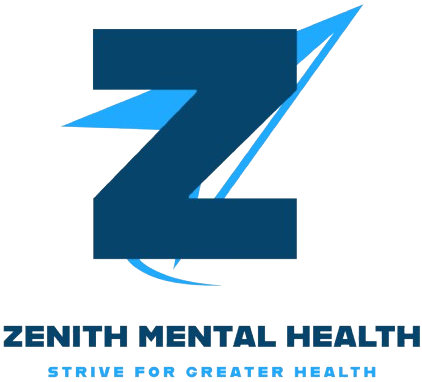Insomnia, a frequent sleep issue, can significantly impact your everyday tasks. If you find it hard to get or stay asleep, or to rejuvenate, you may ask if insomnia is the source.
Recognizing the early signs is essential to get needed support and treatment for a better life quality.
In this post, we’ll delve into how to know if you have insomnia, its signs, likely triggers, and when you should seek expert advice.
We’ll also touch base on crucial topics like if insomnia is a disability and its connection with insomnia VA disability benefits.
What Exactly Is Insomnia?
Insomnia manifests as consistent challenges in achieving or maintaining sleep, or both, despite having ample chance to rest.
It might result in inferior sleep quality, making you feel tired, irritable, or not focused throughout the day.
Types of Insomnia
There are different forms of insomnia.
- Acute insomnia is temporary, often caused by stress or major life changes.
- Chronic insomnia can last over three months, happening numerous times within a week.
- Onset insomnia signifies difficulty in falling asleep.
- Maintenance insomnia means having a problem remaining asleep or waking up too soon.
How to Know If You Have Insomnia?
If you’re asking yourself, “How to know if you have insomnia,” look for these signs:
- Trouble sleeping at night.
- Frequent awakenings.
- Feeling exhausted even after sufficient sleep.
- Not being able to go back to sleep after waking up early.
- Difficulty concentrating in the daytime.
- Frequent mood swings.
If these troubles persist for more than a few weeks and affect your everyday life, it’s time to dig deeper.
Self-Assessment Questions
Asking yourself these questions can help figure out if you have insomnia:
- Am I tired even after sleeping all night?
- Do I need caffeine or other stimulants to get me through the day?
- Is lack of sleep messing with my life?
- Are there any symptoms of stress, anxiety, or depression present because of poor sleep?
Causes of Insomnia
Knowing potential reasons can help determine if your symptoms match insomnia.
Common Triggers
- Stress: Stress like work issues, personal problems, or money worries.
- Lifestyle Choices: Unsteady sleep patterns, overuse of electronic devices, or bad eating habits.
- Health Problems: Constant pain, breathing problems like asthma, or neurological disorders.
- Mental Health: Anxiety and depression are often tied to insomnia.
Is Insomnia a Disability?
Many people ask whether insomnia is a disability.
While generally, insomnia is not seen as a disability, sometimes it can affect your physical and mental well-being so bad it could be seen as a disabling condition.
For instance, if enduring insomnia significantly hampers your ability to work or handle everyday tasks, it might be recognized under some legal or medical settings.
Speaking with a medical provider or legal authority can clarify.
Insomnia and VA Disability Benefits
For veterans, insomnia and disability claims are an important consideration.
The U.S. Department of Veterans Affairs (VA) often sees insomnia as part of other conditions like PTSD or injuries from service.
Eligibility for Benefits
- If you want disability benefits, it’s important to show a connection between your insomnia and your service time.
- Medical proof, like a diagnosis from a doctor, can make your claim stronger.
- Insomnia VA disability rating differs but can greatly increase the compensation you receive.
Veterans suffering from insomnia should speak with a VA representative or law expert.
When to Seek Help
Contact a doctor if you think you have insomnia. Long-lasting insomnia may cause other health problems, such as anxiety, depression, or a weaker immune system.
What to Expect During a Consultation
- You’ll discuss your sleep habits and medical info.
- A physical check-up ensures there are no hidden health problems.
- Suggested changes for your lifestyle or possible treatments, like cognitive behavioral therapy for insomnia (CBT-I) or medication.
Strategies to Combat Insomnia
Professional aid is key, but you can also act on your own to better your sleep:
- Set a regular sleep schedule.
- Form a calming pre-sleep routine.
- Limit screen use before sleep.
- Skip caffeine and large meals at night.
- Work out regularly, but avoid the time near your bedtime.
Concluding Thoughts
Struggling with sleep? Knowing the signs of insomnia is the foundation for getting help. By identifying the symptoms and roots, you can act to enhance your sleep and general health.
If you contemplate whether insomnia is a disability or its connection to insomnia VA disability, professional guidance is necessary.
Assistance is within reach.
Get Support at Zenith Mental Health
Here at Zenith Mental Health, we understand sleep disorders like insomnia.
We provide personalized care to help you reclaim your sleep and life.
Contact us now for an appointment and begin your path to peaceful nights.
FAQs
How do I know if I’m insomniac?
If sleep often eludes you, if you wake up often during the night, or feel exhausted despite getting ample sleep, it might be insomnia.
What are 5 insomnia symptoms?
- Trouble getting to sleep.
- Often waking up in the night.
- Waking up earlier than needed.
- Feeling tired even after sleeping.
- Feeling drained or grouchy during the day.
Do I have insomnia or just trouble sleeping?
Occasional trouble sleeping is normal, but, if it’s a regular issue and it’s impacting your day-to-day activities, it might be insomnia. Get clarity from a healthcare expert.
Can I self-diagnose insomnia?
You can note some signs, but a professional assessment brings proper treatment. It also rules out any other hidden conditions.
Always seek medical guidance if unsure.


No comment